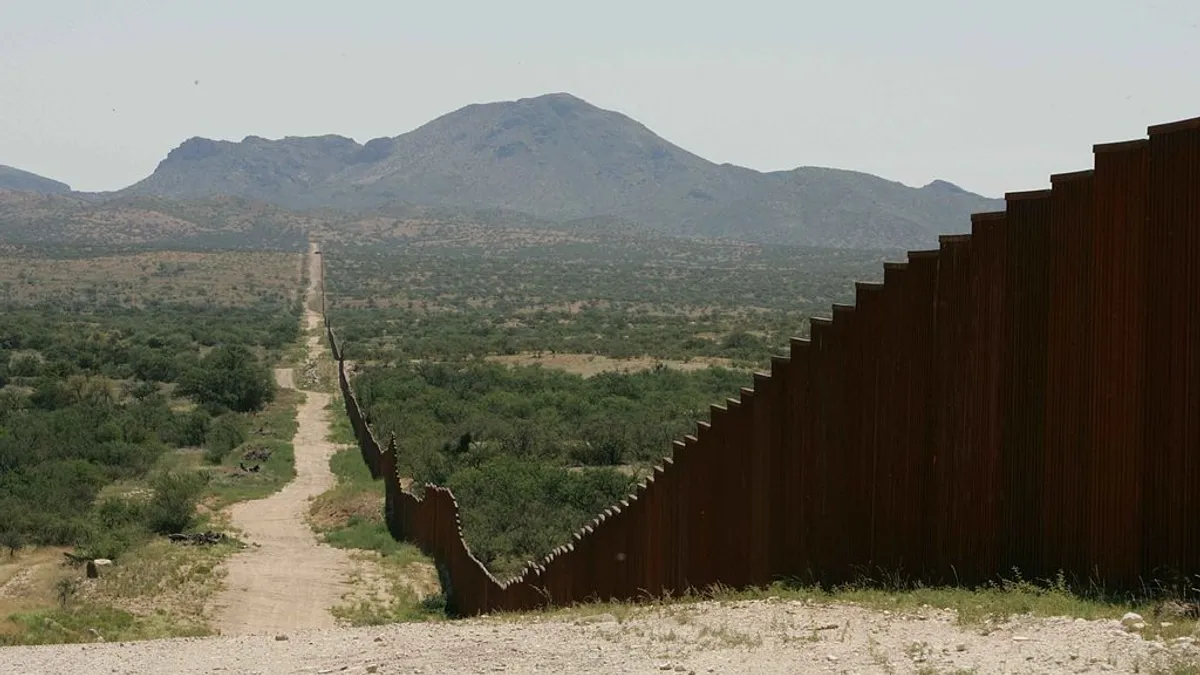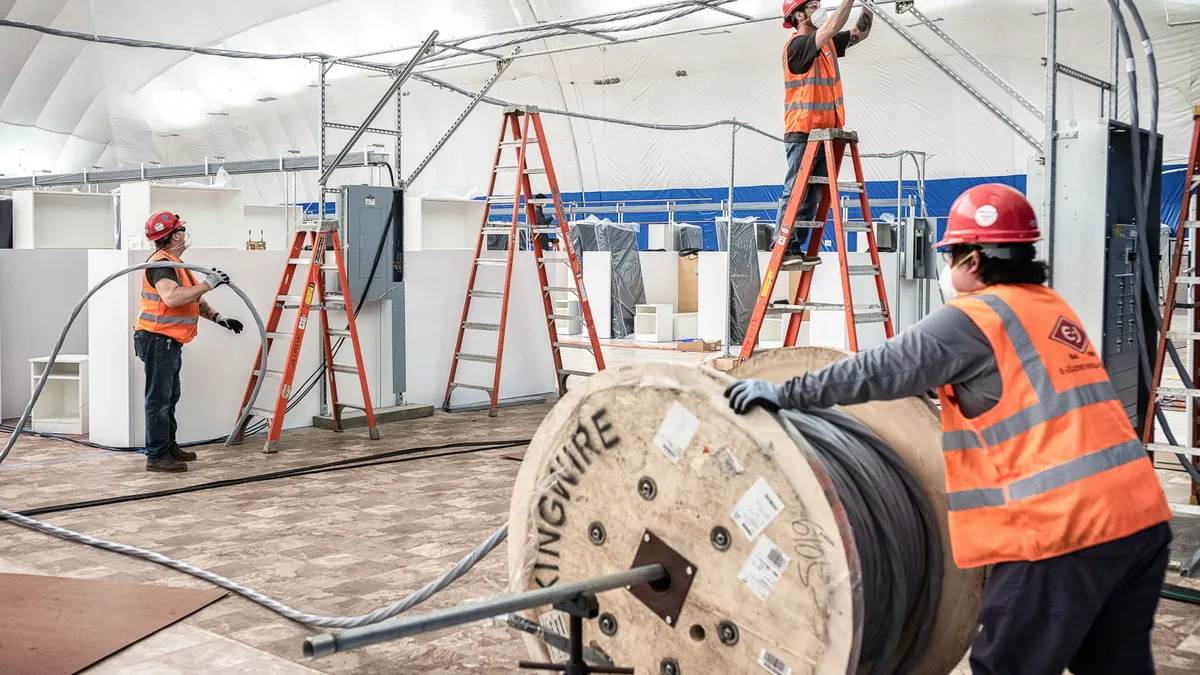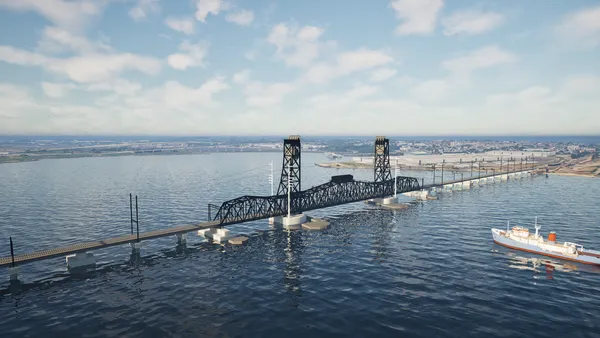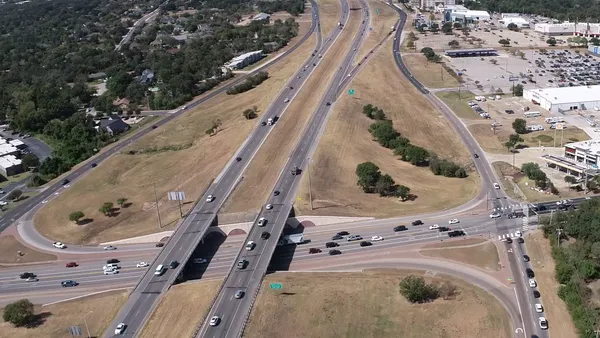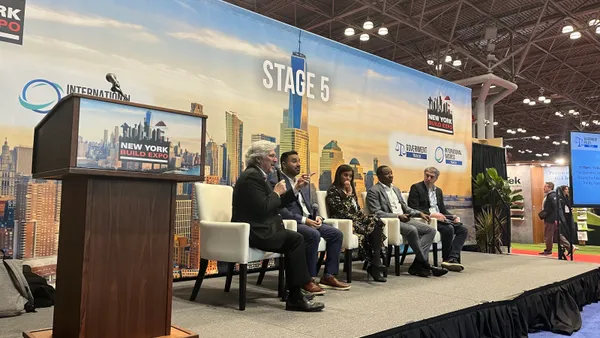Dive Brief:
- The U.S. Department of Homeland Security announced this week that it would begin construction on U.S.–Mexico border wall prototypes this summer near San Diego, according to The New York Times.
- The four to eight prototypes will be built into existing wall sections so that DHS officials can evaluate them and gauge their effectiveness in a real-world scenario. Bloomberg previously reported that the existing border walls around San Diego have been breached 800 times in one year.
- U.S. Customs and Border Patrol announced in May that they had selected prototype contractors but have not released their names, and, according to the Los Angeles Times, the agency has not yet signed any contracts for the prototypes. The wall samples will reportedly cost between $200,000 and $500,000 each.
Dive Insight:
The current specifications for the wall are very general and leave much of the detail to the bidders. The only guidelines federal officials provided were that the wall should be between 18 feet and 30 feet high, aesthetically pleasing from the U.S. side and be as scale-resistant and tamper-proof as possible. Contractors who bid on the wall could choose a reinforced concrete design or some other appropriate material.
Securing the border between the U.S. and Mexico was central to President Donald Trump's campaign last year, but Congress and the much of the public have yet to embrace it from both fiscal and social perspectives.
Although a complete wall would cost an estimated $22 billion, the Trump administration included only a few billion dollars for wall construction in its most recent budget requests. The USCBP has previously said it will pay for prototype construction with $20 million it already has on hand. During the campaign, Trump repeatedly said that Mexico would pay for wall construction, but Mexico officials have denied that claim.
Pushback has come hard and fast from those opposed to the hardline position on immigration that the wall represents. Some local officials have even proposed measures that would prevent their municipalities from doing business with companies that bid on the wall. In addition, infrastructure heavy hitters AECOM and Bechtel announced early on in the process that they would not bid on the border wall project.


